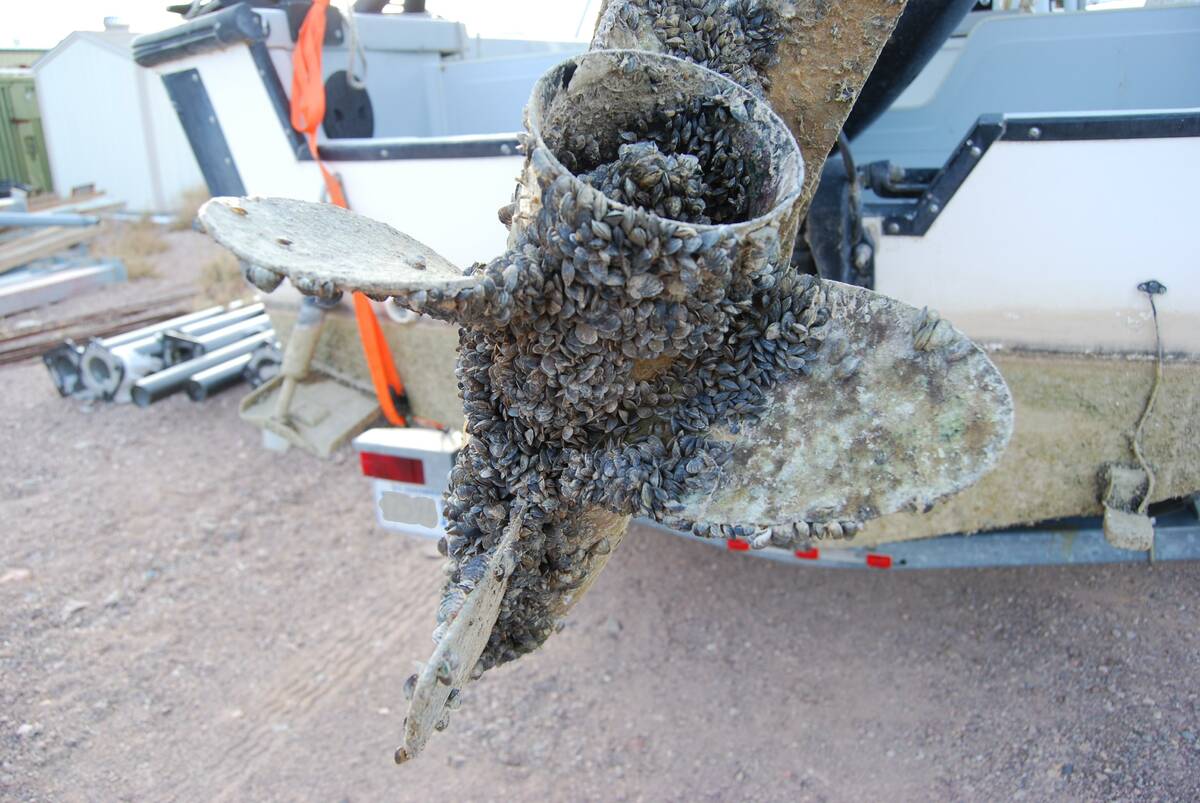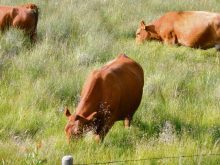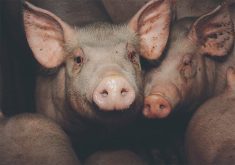A trio of Canadian meat associations says no deal is better than a bad deal when it comes to trade.
They’re protesting in advance of the United Kingdom’s acceptance into the Comprehensive Progressive Agreement for Trans-Pacific Partnership.
The “Say ‘no’ to a bad deal” campaign implores the federal government to delay approving the U.K.’s acceptance to the pact until a fair meat trade deal is negotiated between that country and Canada.
Read Also

Invasive species council lending a helping hand to Alberta agricultural producers
Alberta Invasive Species Council unveils the huge economic effect of keeping invasive species unchecked to agricultural production in the province.
“The Canadian beef and pork industry believes that an agreement with the U.K. that leaves a significant barrier in place and politicizes food safety decisions … does not meet the standard of the CPTPP,” says a news release by the Canadian Cattle Association, Canadian Meat Council and National Cattle Feeders’ Association.
“Therefore, the U.K.’s bid to become a member should be delayed until they can do better to meet the progressive trade principles of the CPTPP.”
The dispute is based on an anti-microbial product, peroxyacetic acid, that Canada uses on meat carcasses to prevent E. coli. The U.K. doesn’t use this on meat, and has leveraged Canadian use to refuse meat. Meanwhile, the interim CPTPP agreement allows the U.K. to access the Canadian meat market.
The Canadian meat lobby calls this is a technical, non-tariff trade barrier.
“We want fair trade that includes the U.K. accepting Canada’s full food safety system so that the beef and pork sectors can have viable access to the U.K. market,” says the release.
“Failing that, we are asking Parliament to ensure producers and processors are fairly compensated for the damages and losses that will result.”
The Canadian government has already given support to the U.K.’s bid to join the CPTPP, although the meat lobby says it did so “without first achieving viable access for Canadian beef and pork to the U.K.”
The campaign is contrary to Canada’s history of compliance with international trade agreements, said an official with the CCA.
“We haven’t just said to (the federal government) ‘We’re not going to support you implementing this.’ We’ve said, ‘We are going to oppose you and we are opposing you,” said John Masswohl.
“We sat down with the minister’s staff. We told them our concerns. They said, ‘we hear your concerns, we’re very aware of your concerns, we tried to address your concerns, but we’re going ahead anyway.’”
The good news, said Masswohl, is that the agreement still requires approval in the House of Commons.
“I think what we have to do is work with the opposition parties, and that is why we have launched this campaign: to let cattle producers and other farmers all across the country know that this is a battle. This can happen in Ottawa and we need all these farmers across the country to tell their Members of Parliament to vote against the bill that will ratify this agreement.”
Masswohl noted inconsistencies with the interim meat trade agreement between the two countries.
One is that the U.K. allows the use of peroxyacetic acid to attack bacteria in most of its food, excluding meat.
“You can’t have it both ways. You can’t say it’s safe for this thing that matters to us and it’s not safe for that thing that matters to you,” he said.
“I think they’re dead in the water if they try that argument. I would say it’s certainly worth a WTO (World Trade Organization) sanitary and phytosanitary case, and I think we would win it handily.”
Ironically, Canada accepts meat from the U.K. on which other methods are used to satisfy Canadian E. coli standards, which essentially require no E. coli at all.
Masswohl said peroxyacetic acid doesn’t have to be used to effectively control E. coli, but Canada’s food safety system considers it risky not to do so.
“You can meet the E. coli standard without using it most of the time. But if we were to test (UK beef) – and I think we probably should be testing all their meat that comes here – I think we will probably find that they have a higher reject rate than we would expect.”
There seem to be different expectations of consumer behaviour between the U.K. and Canada where it comes to meat, said Masswohl.
“The legal context in which we operate in Canada and North America is different than the legal context in which they operate. In the U.K. and in Europe generally, they expect the consumers to cook the meat properly. If the consumer gets sick from not cooking properly or improper meat handling or kitchen hygiene, it’s (the consumer’s) fault.
“Here, if somebody gets food poisoning because they didn’t properly cook their meat — because cooking it will kill the E. coli and most bacteria — or they don’t wash their hands and they cross-contaminate their kitchen, it’s the company’s fault. Legally, the company can be sued.”
Brodie Haugen, chair of Alberta Beef Producers, supports the trade stance of the national groups. Alberta may not send much beef to the U.K., but if it ever does, the province’s beef producers will bear the brunt of unfair trade policies, he said.
“Alberta makes up the majority of the cattle industry,” said Haugen. “We’re home to 65 per cent of the breeding cow herd and we’re 70 to 80 per cent of the feeding sector.
“We believe that you need to have fair, honest trade negotiations that are based on science. And if you aren’t able to have that conversation, it’s better to not have a deal than to have a bad deal.”
Canada can’t afford to have bad deals with any potential market, he said. According to Canfax, the U.K. was the sixth largest importer of beef and veal in 2022.
“The Canadian market is so dependent on trade that any trade discussions, be it maybe a smaller market or an average-sized market, are still very valuable to our industry because every market typically has a very unique product that they’re looking for and different price points that they’re looking for,” said Haugen.
“Every discussion that we can have and every market we can open is extremely valuable for Canadian beef and therefore extremely important for Alberta beef.”















